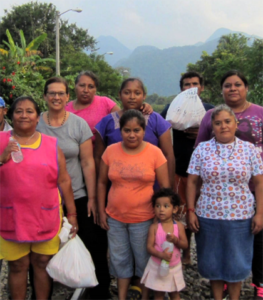Mexico struggling with asylum seeker influx
Mexico, traditionally a country of origin for migrants or a transit stop on the treacherous Central American route to the United States, has now become a destination for people fleeing violence and persecution in their homelands.
And the swelling numbers have caught Mexico by surprise – and authorities are struggling to deal with the influx.
 According to the Mexican Commission for Refugee Assistance (COMAR) which processes asylum applications, the country has seen a nearly 600 percent rise in asylum petitions over the last four years.
According to the Mexican Commission for Refugee Assistance (COMAR) which processes asylum applications, the country has seen a nearly 600 percent rise in asylum petitions over the last four years.
In 2013, COMAR received about 1,300 requests for asylum. That jumped to almost 8,800 last year. Groups that work closely with asylum seekers in Mexico predict applications will soar this year.
The United Nations says there has been a more than 3,500 per cent increase in asylum applications in Mexico over the past seven years and as many as 80,000 people are expected to apply this year alone.
This growth has exposed Mexico’s undermanned refugee system, which migrant rights advocates say is often unsympathetic and doesn’t want new asylum seekers.
A report by US-based Human Rights First warned that COMAR was “exceedingly understaffed”. As protection applications surge, an asylum process that is meant to take 45 days now stretches on for months.
Critics say its decisions can be flawed, unfair, and wildly inconsistent – the report cites the case of a Haitian man who was granted refugee status while his wife and children were denied.
“Mexico,” the report concluded, “is far from a safe third country for refugees.”
New groups of asylum seekers are choosing Mexico because it’s seen as a safer alternative to the perilous Mediterranean route to Europe, where more than 7,700 people have died over the last two years.
Adding to the problem, a recent Trump Administration policy, known as MPP, means immigrants seeking asylum in the United States have to remain in Mexico while they await their court hearings.
In addition, the US has drastically reduced the number of refugees it will accept next year to just 18,000, the lowest in decades.












